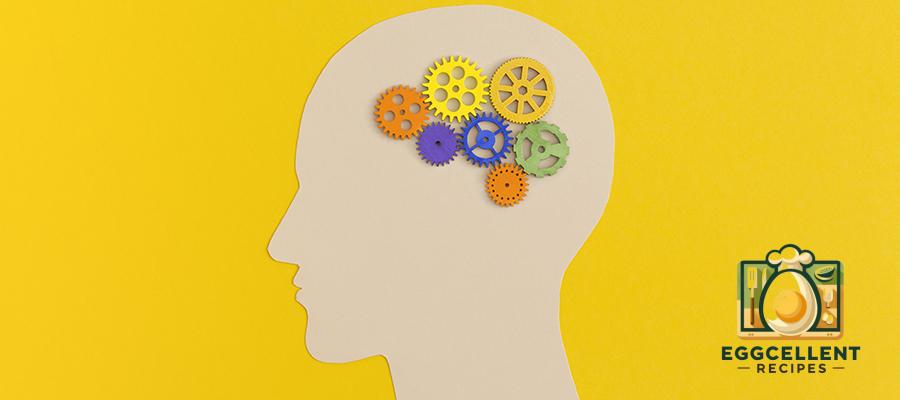
Eggs are one of nature’s most nutrient-dense foods, providing a rich source of high-quality protein, vitamins, and essential minerals. Consuming eggs regularly can offer numerous health benefits, from supporting muscle growth to improving brain function. However, what happens to your body if you eat eggs every day? In this article, we will explore the potential benefits and considerations of daily egg consumption and how it can affect your overall health.
1. Muscle Health and Repair

Eggs are an excellent source of high-quality protein, making them ideal for supporting muscle health. Each egg contains about 6 grams of protein and all nine essential amino acids. Eating eggs daily can:
- Promote muscle repair: After physical activity, protein is necessary for rebuilding muscle fibers. The amino acids in eggs contribute to faster recovery.
- Support muscle growth: For those engaging in regular exercise or strength training, the protein in eggs can help in muscle development and maintenance.
As a complete protein source, eggs provide a reliable and convenient way to fuel your muscles.
2. Enhanced Brain Function

Eggs are rich in choline, an essential nutrient vital for brain function. Choline helps produce acetylcholine, a neurotransmitter that supports memory and cognitive function. Eating eggs daily may:
- Improve memory: Regular intake of choline from eggs supports neural communication and can enhance cognitive performance.
- Protect brain health: Choline is crucial for brain development, making eggs an excellent food choice for pregnant women to support fetal brain growth.
By consuming eggs daily, you are nourishing your brain and promoting mental sharpness.
3. Better Eye Health

Egg yolks are packed with lutein and zeaxanthin, two antioxidants known for their role in protecting eye health. These antioxidants can help:
- Reduce the risk of macular degeneration: Eating eggs regularly may lower your chances of developing age-related macular degeneration, a leading cause of vision loss in older adults.
- Filter harmful blue light: Lutein and zeaxanthin help protect your eyes from blue light, which can contribute to eye strain and damage.
Adding eggs to your diet can be a great way to support long-term eye health and reduce the risk of vision problems.
4. Heart Health and Cholesterol Balance

There has been much debate about eggs and their effect on cholesterol, but recent research suggests that for most people, moderate egg consumption does not raise the risk of heart disease. In fact, eating eggs every day can have positive effects on cholesterol:
- Raise HDL (good) cholesterol: Regular egg consumption has been shown to increase levels of high-density lipoprotein (HDL), which helps remove excess cholesterol from the bloodstream.
- No significant impact on LDL (bad) cholesterol: For most individuals, eating one or two eggs daily does not significantly affect low-density lipoprotein (LDL) cholesterol levels.
While eggs contain dietary cholesterol, they do not seem to have a major impact on blood cholesterol for the majority of people.
5. Weight Management and Satiety

Eggs are highly filling due to their combination of protein and healthy fats, making them a great food for weight management. Eating eggs daily can help:
- Control appetite: The high protein content of eggs can help you feel full for longer, reducing the urge to snack between meals.
- Support weight loss: Studies have shown that starting the day with an egg-based breakfast can help reduce overall calorie intake throughout the day, supporting weight loss efforts.
By keeping you satisfied for longer periods, eggs can be a helpful tool in managing your weight and curbing cravings.
6. Stronger Bones and Teeth

Eggs are one of the few natural sources of vitamin D, which is essential for calcium absorption and bone health. Eating eggs daily may:
- Promote strong bones: Vitamin D helps the body absorb calcium, which is crucial for maintaining bone density and preventing osteoporosis.
- Support dental health: The combination of vitamin D and phosphorus in eggs also contributes to healthy teeth and gums.
Adding eggs to your daily diet is a simple way to support the health of your bones and teeth.
7. Improved Skin, Hair, and Nails

Eggs are rich in biotin, a B-vitamin that plays a key role in the health of skin, hair, and nails. Eating eggs regularly can:
- Enhance hair growth: Biotin supports keratin production, promoting thicker, stronger hair.
- Improve skin elasticity: The protein and vitamins in eggs help maintain skin elasticity and reduce dryness.
- Strengthen nails: Biotin is known to improve nail strength and reduce brittleness, making eggs a great addition to a beauty-boosting diet.
Daily egg consumption can contribute to healthier, more vibrant hair, skin, and nails.
8. Support for a Healthy Immune System

Eggs are packed with essential nutrients, including vitamins A, B12, and selenium, that help strengthen the immune system. Eating eggs every day can:
- Boost immune function: Selenium and vitamin B12 in eggs are important for maintaining a healthy immune response.
- Reduce inflammation: The antioxidants in eggs help reduce inflammation, which can support overall immune health.
By including eggs in your daily diet, you can help your body fend off illnesses and maintain a strong immune system.
9. Balanced Blood Sugar Levels
Eggs are low in carbohydrates and high in protein and healthy fats, making them a great option for stabilizing blood sugar levels. Regular egg consumption can:
- Help manage diabetes: Eggs have a low glycemic index and can be beneficial for people with diabetes or those at risk of developing it.
- Prevent blood sugar spikes: The combination of protein and fat helps slow digestion, preventing rapid increases in blood sugar levels after meals.
Eating eggs as part of a balanced diet can help regulate blood sugar and reduce the risk of type 2 diabetes.
Considerations for Eating Eggs Every Day
While eating eggs daily offers many health benefits, it’s important to consider a few factors:
- Opt for quality: Choose organic, pasture-raised, or free-range eggs whenever possible to ensure higher nutrient content and better animal welfare.
- Moderation is key: Although eggs are a healthy food, balance them with a diet rich in fruits, vegetables, whole grains, and lean proteins.
- Consult with your doctor: Individuals with certain health conditions, such as familial hypercholesterolemia, should consult a healthcare professional before consuming eggs regularly.
Final Thoughts
Eating eggs every day can provide a wide range of health benefits, from supporting muscle growth and brain function to promoting heart health and aiding in weight management. Rich in protein, vitamins, and essential nutrients, eggs are a versatile and convenient addition to any diet.
Whether you enjoy them scrambled, poached, or hard-boiled, eggs are a nutritious and affordable way to improve your overall health. As with any food, it’s important to eat eggs in moderation and as part of a balanced, healthy diet. By doing so, you can reap the many benefits that eggs have to offer while maintaining optimal health.






